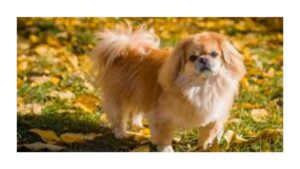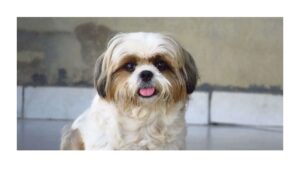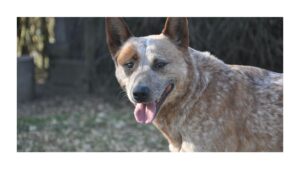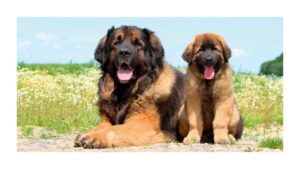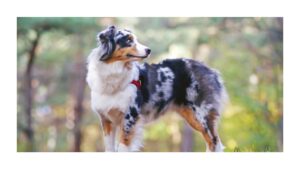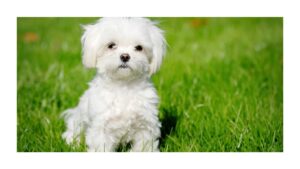When it comes to choosing a dog, size matters for many people. For apartment dwellers, seniors, or individuals looking for a less demanding companion, small dog breeds can be the perfect choice. Small dogs are not only adorable but also often have big personalities that make them excellent companions. Whether you’re a first-time pet owner or a seasoned dog lover, a small dog may be exactly what you’re looking for.
In this comprehensive guide, we’ll explore some of the most popular small dog breeds, their temperaments, grooming needs, and health considerations. We’ll also look at the lifestyle considerations to help you decide if a small dog breed is the right fit for your home and family.
Why Choose a Small Dog?
Small dogs have been increasing in popularity due to their many benefits. Here are a few reasons why they’re the perfect companion for some:
- Space Requirements: Small dogs are ideal for people who live in apartments or have limited space. Unlike larger dogs, they don’t require a vast backyard to run around in, making them easier to accommodate in smaller living environments.
- Exercise Needs: While all dogs need exercise, small dogs tend to have lower energy levels compared to larger breeds. They can often meet their daily exercise needs with short walks or indoor playtime.
- Longevity: Smaller dogs typically live longer than larger breeds. On average, small dogs can live 12 to 16 years or more, making them long-term companions.
- Affectionate and Adaptable: Small dogs often develop strong bonds with their owners. Their size means they’re generally more adaptable to family life and can be easily carried or cuddled.
- Ease of Grooming: While this varies depending on the breed, many small dogs have manageable coats that are easy to groom, making them less time-consuming than larger, high-maintenance breeds.
Popular Small Dog Breeds and Their Characteristics
Let’s dive into some of the most popular small dog breeds. Each of these breeds is distinct, with unique traits that make them suitable for different lifestyles.
1. Chihuahua
- Size: 2 to 6 pounds
- Personality: Chihuahuas are known for their big personalities packed into tiny bodies. These dogs are confident, alert, and fiercely loyal to their owners. They are often fearless and protective, making them excellent watchdogs.
- Care Needs: Due to their small size, Chihuahuas are prone to dental issues and should receive regular teeth cleaning. They also require protection from extreme temperatures as they have a small frame and thin coat.
- Exercise: Chihuahuas don’t need excessive exercise, but daily short walks will keep them happy and healthy.
2. Yorkshire Terrier (Yorkie)
- Size: 4 to 7 pounds
- Personality: Yorkies are playful, affectionate, and sometimes even a little stubborn. They are often described as having a “big dog” mentality due to their energetic and confident nature.
- Care Needs: Yorkies have a fine, silky coat that requires regular brushing and grooming. They are also prone to dental issues, so dental care is important.
- Exercise: Despite their small size, Yorkies are energetic and require regular playtime and short walks to stay fit.
3. Pomeranian
- Size: 3 to 7 pounds
- Personality: Pomeranians are lively, friendly, and bold. They have a natural curiosity and love to be the center of attention. Known for their fluffy coats and charming personalities, they are often considered lap dogs.
- Care Needs: Their thick double coat requires regular grooming to avoid matting. Pomeranians also need to be monitored for weight gain, as their fluffy coat can sometimes hide excess pounds.
- Exercise: Pomeranians require moderate exercise. A few short walks and some indoor playtime are sufficient for this breed.
4. Dachshund
- Size: 8 to 12 pounds
- Personality: Known for their unique long bodies and short legs, Dachshunds are playful, courageous, and curious. They tend to form strong bonds with their owners and are very loyal.
- Care Needs: Due to their long spine, Dachshunds are prone to back issues, so it’s essential to keep them from jumping or rough play. Their coat may require regular brushing depending on whether they are short, long, or wire-haired.
- Exercise: Moderate exercise is needed. Daily walks and some playtime will keep them healthy, but you must avoid too much jumping to protect their spine.
5. Shih Tzu
- Size: 9 to 16 pounds
- Personality: Shih Tzus are known for their affectionate and friendly nature. These dogs are generally good with children and other pets. Despite their calm demeanor, they are playful and enjoy companionship.
- Care Needs: Shih Tzus have a long, luxurious coat that needs regular grooming and maintenance to prevent tangles and mats. They can also be prone to respiratory issues due to their flat faces.
- Exercise: They are moderately active and enjoy daily walks, but they are typically content with some indoor playtime as well.

6. Maltese
- Size: 4 to 7 pounds
- Personality: Maltese dogs are known for their gentle and playful nature. They are affectionate, loyal, and thrive on attention from their families. Their small size and cheerful disposition make them great companions.
- Care Needs: Maltese dogs have long, flowing white coats that require frequent grooming. Regular brushing and occasional baths are essential to prevent mats and tangles.
- Exercise: They have moderate energy levels and require a few short walks and some playtime each day.
7. French Bulldog
- Size: 16 to 28 pounds (on the larger end for small dogs)
- Personality: French Bulldogs are charming, affectionate, and sometimes a bit stubborn. They are excellent companions, forming strong bonds with their families and often following their owners everywhere.
- Care Needs: Due to their flat faces, French Bulldogs are prone to breathing issues, so you must avoid excessive heat and strenuous exercise. Their coat is short and easy to maintain, but their wrinkles need to be cleaned regularly.
- Exercise: French Bulldogs enjoy moderate activity, such as short walks, but they are not overly energetic.
8. Cavalier King Charles Spaniel
- Size: 13 to 18 pounds
- Personality: These dogs are affectionate, gentle, and friendly. They love to be with their owners and are great with children and other pets. Cavaliers are known for their calm demeanor and friendly disposition.
- Care Needs: Cavaliers require regular grooming to keep their coats shiny and free of tangles. They are also prone to heart issues, so regular veterinary checkups are important.
- Exercise: They enjoy moderate exercise and benefit from daily walks and playtime.
Health Considerations for Small Dog Breeds
While small dogs generally have longer life spans than larger dogs, they still come with certain health considerations. Here are a few common health issues seen in small dog breeds:
- Dental Issues: Small dogs are prone to dental problems such as gum disease and tooth loss. Regular dental care, including brushing their teeth and professional cleanings, is essential.
- Luxating Patella: This is a condition where the kneecap dislocates, common in small breeds. Regular vet visits and maintaining a healthy weight can help manage this condition.
- Heart Issues: Some small breeds, such as the Cavalier King Charles Spaniel, are prone to heart disease. It’s important to monitor your dog’s health and get them checked regularly by a vet.
- Obesity: Small dogs can easily gain weight, especially if they are overfed or not exercised enough. Keeping your dog active and feeding them a balanced diet will help prevent obesity.
Conclusion
Small dogs make excellent companions for a wide range of lifestyles. Their affectionate nature, manageable exercise needs, and ease of grooming make them popular choices for those with limited space or those looking for a loving companion. Whether you choose a spunky Chihuahua, a regal Shih Tzu, or a loyal Yorkshire Terrier, small dogs offer the perfect mix of charm, energy, and companionship.


